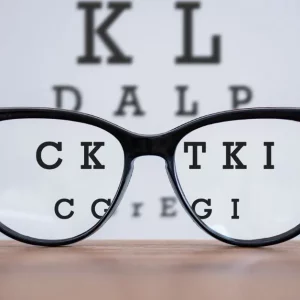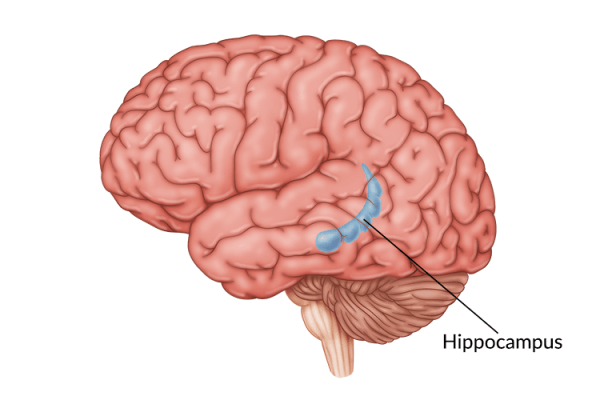Wondering how to improve short-term memory after brain injury? You’ve come to the right place.
In today’s article, we’re showing you 9 unconventional techniques that can help you boost your short-term memory skills. You’ll also learn some healthy habits to cultivate to improve your memory in general.
Let’s get started.
Understanding Short-Term Memory After Brain Injury
One of the most common memory problem after TBI is short-term memory loss. But what is it exactly?
Long-term memory is the type of memory that allows you to store information for an extended period. Short-term memory, on the other hand, refers to a person’s ability to hold information for about 30 seconds.
While 30 seconds might not sound like much time, short-term memory is the reason most people can:
- Understand sentences, both written and spoken
- Recall small sequences of numbers, like telephone numbers
- Remember what’s on their grocery list
Essentially, short-term memory allows you to learn new things and interact with the world. This can explain why behavior changes after TBI are quite common.
For example, TBI patients with short-term memory loss might forget important details of a conversation, lose track of time and feel unsure of what day it is, or be unable to retrace a route they took earlier that day.
A person with severe short-term memory problems also could not follow a conversation, because they would forget what the person speaking to them just said.
Causes of Short-Term Memory Loss After Brain Injury
Several brain regions help process and encode memories, and damage to any of these areas can cause short-term memory loss. Some of the main areas of the brain involved in memory include the:
- Cerebral cortex
- Hippocampus
- Parahippocampal gyri
- Thalamus
Even if a brain injury does not directly damage these areas, research has shown that prolonged levels of stress can shrink the hippocampus. This helps explain why even individuals with mild TBIs or concussions can experience memory loss.
It’s also important to note that short-term memory loss is different from confabulation, a condition where a person creates false or inaccurate memories without the intent to deceive. If you’re concerned about the possibility of confabulation in a loved one that suffered a brain injury, talk to their doctor for a diagnosis.
Cognitive Tricks to Improve Short-Term Memory After Brain Injury
Now that you understand what short-term memory is and how brain injury can affect it, it’s time to learn how to improve your memory.
The following are some unconventional ways to stimulate your brain and boost your short-term memory after TBI:
1. Use Association
One of the best ways to improve your short-term memory after brain injury is to use association.
In fact, that’s the way most people learn things. For example, if you ever took piano lessons, you can probably still remember the notes of the musical scale by remembering the phrase “Every Good Boy Does Fine.”
You might already know this as a mnemonic, and it works by using the first letter of a word to remind you of a different word.
Therefore, next time you want to remember something important, try linking it to something else, like a word that rhymes.
While that may sound too simple, making odd connections like that is actually the natural way your brain remembers things.
2. Use Vivid Images

Not all association has to be mnemonic. Those aren’t always very helpful when you want to remember things like appointments.
But according to research on memory, association can still help you if you connect a fact with something concrete and vivid.
For example, if you need to remember that your doctor’s appointment is at 4 P.M, here are some tricks you can use:
- Remember that the car you will drive to the doctor’s office has four wheels, which is what time you need to be there.
- Shorten doctor to the word “doc” which rhymes with dog, which has four legs, etc…
- Imagine your dog is driving your car, which has four wheels.
These examples are absurd, but that’s the point. The crazier the image, the easier it will be for your brain to remember it.
These kinds of associations can be hard to do at first, but as you practice, they will become second nature.
3. Space Your Repetition
Repetition is the secret to learning almost anything. However, you can’t simply repeat something a few times and expect to remember it.
Instead, you must space out your repetition so you can reinforce what you want to remember right when you’re about to forget.
One way to do this is to create some flashcards with whatever information you’re trying to learn. If you remember the info, wait ten minutes, and then quiz yourself. If you get it right again, wait 40 minutes, then 60 etc…
The point is to keep challenging yourself.
This is similar to regaining the ability to walk after brain injury. Repeating the movement reinforces neural pathways in the brain until the action is fully encoded.
This means the more you rehearse a memory, the easier it will be to recall.
4. Listen to Music

Music therapy has many cognitive benefits for brain injury patients, but perhaps the most powerful benefit is how listening to music boosts memory.
Not only does music help brain injury patients recover old memories, it even helps people retain new information.
So, if you want to remember something important, try singing it to the tune of your favorite song. You’ll be surprised how much more you’ll be able to memorize.
5. Write it Down
Writing down things you want to remember is usually used as a compensatory practice. You look at what you wrote to make sure you don’t forget it.
But it turns out that the act of writing something on paper also forces your brain to focus more, which in turn improves memory.
That’s why writing notes is more effective for learning than typing on a laptop.
Healthy Habits to Improve Memory After Brain Injury
If you want to permanently improve short-term memory after brain injury, you must do more than use a few mental tricks.
You’ll also need to cultivate healthy habits that promote good memory.
Here are just a few lifestyle changes you can make to improve your short-term memory.
6. Rest

Most memory problems after brain injury are caused by an overstressed brain. If the brain gets too tired, it can’t devote any energy to paying attention, which means it won’t be able to store any memories.
That’s why rest is so important after a brain injury. Rest gives your brain the energy to retain information.
Studies have also shown that sleep is the time when your brain consolidates memories. In other words, during sleep, short-term memories stick and become long-term memories, according to researchers at Beth Israel Deaconess Medical Center.
Therefore, make sure you get enough rest throughout the day. If you have trouble staying asleep at night, talk to your doctor about taking melatonin supplements.
7. Try Meditation
Meditation can reduce stress on your brain, which will help it hold on to more memories.
In fact, research shows that mindfulness meditation practice improves executive function, working memory, and attention skills.
Since attention and concentration are key to memorization, this means meditation can improve your memory abilities.
Meditating is hard work at first, but after enough practice, you’ll find it much easier to pay attention for longer periods, and you’ll start seeing improvements in your memory.
8. Exercise

Regular, non-strenuous exercise is one of the best activities you can do to improve short-term memory after brain injury.
According to several studies, aerobic exercise actually stimulates the growth of new brain cells and improves memory and cognition. It also increases cerebral blood flow, which brings more oxygen to the brain structures in charge of memory.
Want 25 pages of TBI recovery exercises in PDF form? Click here to download our free TBI Rehab Exercise ebook now (link opens a pop up for uninterrupted reading)
That’s why it’s so important to stay active every day, if possible. If you can’t visit your physical therapist more than once or twice a week, you can still take part in recreational therapy activities.
There are even home therapy devices such as FitMi that help keep you moving every day, even if you have severe physical limitations.
9. Eat Memory-Boosting Foods
Finally, to improve short-term memory, you must give your brain the fuel it needs to function. This means improving your brain injury recovery diet.
Start by focusing on what not to eat. Specifically, try to avoid eating foods high in trans fats and processed sugar, since these foods cause the liver to produce fats that are damaging to the brain.
Instead, try to consume foods that are known to help with TBI recovery. Specifically, focus on consuming foods high in antioxidants and omega-3s. These foods have been linked to better overall brain function, including memory.
Improving Memory After Brain Injury is Possible
How the brain stores memory is a fascinating process. Hopefully, these tricks have shown you how to make the most of this process.
You might also want to try some cognitive training apps to help boost your memory. These can give you the practice you need to restore your memory.
With enough practice and with healthy living habits, you should begin to see an improvement in your short-term memory. Good luck!










